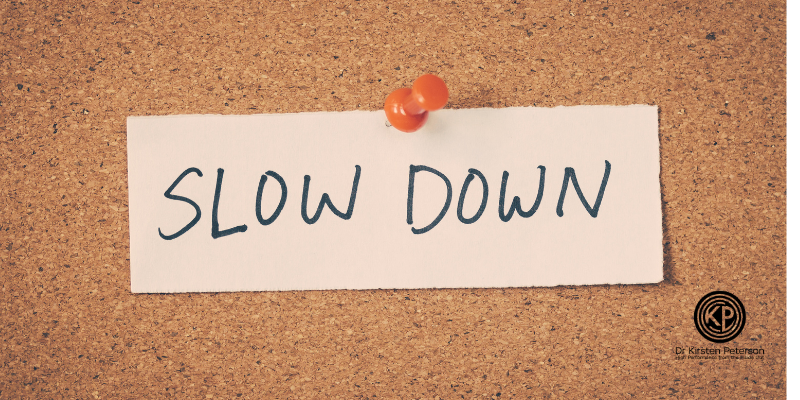The road to success in any difficult endeavour worth pursing is likely to—no, absolutely is guaranteed to—be marked by set-backs and failures. How we respond to those inevitable challenges has the power to accelerate, stall, or even derail our progress.
Easy to say…harder to execute, especially if you are personally invested. Ironically, it is the personal investment – the passion we have for something that is important to us, that may even come to define us – that also poses the greatest risk to us when things don’t go our way. As counterintuitive as this may sound, we will want to learn to take things less personally, even when all signs point to the failure being our fault. Otherwise, we risk humiliation.
When we perceive failure as humiliating, it means that we have interpreted the situation personally. And not in a good way. When my small business wasn’t growing despite my best efforts, I felt humiliated. It was awful. I felt incompetent, like I had failed. Tears and the urge to quit followed.
But when I could see the exact same situation as humbling, the inner struggle lessened. So interesting! Nothing external changed—I still had work to do—but the mental shift gave me back some energy.
This mindset shift brings three powerful benefits:
- It Saves Energy Given that everything we do in our increasingly fast-paced and complex lives requires energy, this benefit cannot be overstated. Facing up to and dealing with personal and professional demands? All of this requires energy. Lots of it. Best to save where we can. Because any energy we fritter away dealing with humiliation is wasted. Think back to the last time you felt personally humiliated—be it a public failure or a perceived insult. How much energy went into defending yourself, agonising over it, or feeling defeated? Now imagine redirecting that energy toward solving the actual problem instead.
- It Reduces Pain. When I see the challenges of small business as humbling and not personally humiliating, I stand shoulder-to-shoulder with every other small business owner on the planet. It’s not about me, it’s about an incredibly complex and difficult path we all choose to take because we love what we do and want to succeed. While this perspective isn’t always pleasant, it’s far less excruciating. The path is hard for everyone. And with that, I find a paradoxical kind of comfort—and a renewed ability to get back to work.
- It Provides Clarity. Humiliation clouds progress because we first have to recover from it. It’s just another, unnecessary step that we created. And for some people (and this was almost me), they never recover or get past that step. They, in effect, lose their way. What if the problem is not in us, but in the difficulty of the situation itself? When we can – literally – get out of our own way and see the problem for what it is, we are that much closer to solving it.
A business case in point: coffee retailer Starbucks experienced a series of high-profile setbacks after explosive growth in the mid-2000s. Then-CEO Howard Schultz took unprecedented public responsibility for the company’s overreach. Citing the mistakes made without getting bogged down by them, Schultz quickly closed 600 underperforming stores and temporarily shut down all U.S. locations to retrain baristas on espresso preparation, refocusing on quality and customer experience. This agile and transparent approach to unforeseen problems helped Starbucks to weather the pandemic and current industrial relations difficulties to remain the world’s largest coffeehouse chain.
This distinction – humiliation versus humility – has proven to be so powerful, that it is often the first place I go with coaching clients who are struggling with their performance in some way. High performance is hard enough. Perhaps it is time to stop taking things so personally.
As always, I’d love to hear what you think!



